Post by Evie ❤✿ on Jan 18, 2024 11:55:52 GMT -5
There are at least eleven classes I can think of right now. Discuss:
1. A thrilling (or immersive) game might be something like Super Mario Odyssey, Xevious or Pokémon. For it to fulfill its purpose, it must present a challenge, perhaps also a sense of worldbuilding, its own dynamics of complexity (and engine within its world, whether that's platform physics, a shooter, an RPG etc) and a sense of reward such as clearing a level/finishing the scenario, a highscore etc. Such games are also seen as immersive in their own ways, as players attempt to analyze their world. There is a cognitive response and sense of satisfaction of bringing it to completion. However, the more enjoyable and immersive that game is also comes the risk of addiction (see Skinner Box). What I mean by this analogy is the same reason why Twitter is also addictive; as comments are reinforced by likes (and integrating within the world of your circle). In addition to this, the 'puzzle' to solve might be the roadblock that requires you to think about the solution, or read a strategy game for a game like EarthBound. Thrill games can also feed into a drive for competition and challenge.
In the study of spirituality/religion, it is similar to the Shangri-La pinball machine (the reasons why you can read about in this article). There is a world-building, and a common goal; and more can be inferred through our own head-canons and imaginaions beyond the narrative intended by the developers.
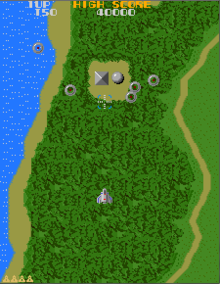
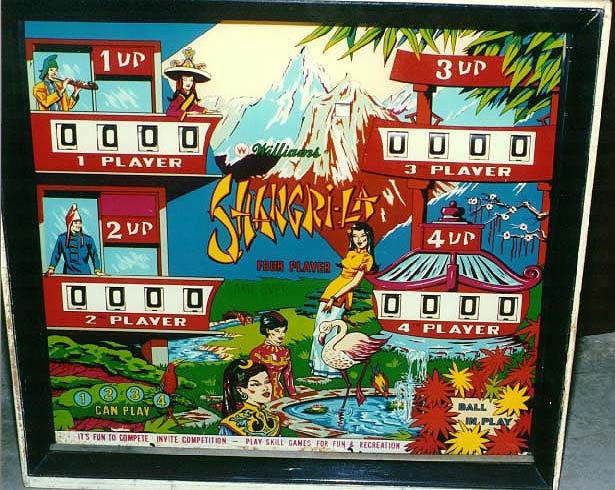
2. Contrary to the idea of a 'thrill' game (which Pong, Super Mario Bros., Pac-Man, countless others have popularised) are relaxing 'cosy' games. For those attached to an outdated idea of video games, this may surprise them; but things like Facebook, mobile phone apps (Farmville etc.), and Satoru Iwata's "Touch! Generations" policies for Nintendo DS (Brain Training) etc were great at introducing older people to video games (also as a stereotype often girls, though I'm a girl and still like thrill games, where outdated conservative ideas will say 'Women are from Venus. Men are from Mars' and are not really interested in thrill and prefer cozy games), and they don't necessarily have to be about thrill. It can also be a means to fantasize having a career such as being a hairdresser, stylist, carer of pets, mother/father/etc or social position like being a villager on a remote island. What I also find interesting, is that apparently Nintendogs for Nintendo DS outperformed Nintendogs + Cats for Nintendo 3DS. Maybe some of these older people felt something like, "is it worth buying the 3DS?"; "I have what I need with the original Nintendogs and Nintendo DS". Of note however is to consider even within 'cozy' games; there may be some element of dopamine reward - as simple as building a pleasing house or a villager complementing you, for instance. Cozy games can also provide an element of escape; the same as thrill games, but for those who prefer cozy games, they might not want something so stimulating as a thrill game.
Also cozy games were on Nintendo's older Game Boy and Game Boy Advance titles platforms too (e.g. third party game Kawaii Usagi); but we gather the Nintendo DS took off probably with its clearer screens and touch controls as a huge factor for older people to accept it. And of course the advertising, and with games like Brain Training, Professor Layton becoming viral. Something being on a handheld device rather than a home console is also relevant (I can't remember specifically, but reception about Nintendo Space World and sentiment about the Nintendo 64DD was that these consoles were too complex/niche, and that people should learn from the Game Boy).

Nintendo actually did plan a Touch Panel adaptor for the Game Boy Color, but it was cancelled (or logically you could say; the Nintendo DS fulfilled that concept).

Many older adults (and girls/women) enjoy cosy games; with lots of people having spent countless hours on Animal Crossing for instance. Of course (despite the demographic patterns), it's also just a stereotype as younger people, boys enjoy these too.
As far as Nintendo is concerned; Animal Crossing as one of the most famous examples. Additionally, it feels like people say the Casio Loopy failed because it aimed for a market that didn't exist and these are not generally 'thrill' games (I don't know if there are any such 'thrill' games for Casio Loopy at all). I disagree with the sentiment that the market wasn't there, and believe that there was such an audience; but it just didn't end up a the top of the bubble of public fame/'relevance'.
The Casio Loopy game I Want a Room in Loopy Town! has been compared to Animal Crossing, 5 years before it came out.
/photo/1


There is both the outdated idea that video games are more like 'thrill' games; as well as the sexism, agism that comes with it (e.g. boys prefer 'thrill' games, older people don't enjoy 'thrill' games etc.)
I remember there is a YouTuber I used to watch (unfortunately I can't remember her channel name) who is an old aged woman. When she inquired about video games, there was (naturally) an assumption that she wanted family friendly games, but really she wanted to play more stereotypical 'hardcore' games with depth like RPGs.
3. A visual novel (it is meant to be read, and sometimes is like a choose your own adventure story). Or a medium for information such as a Satellaview magazine. Examples: Shin Onigashima, PockeCam Magazine, Yuyuki, Time Twist, Metal Slader Glory, Buddy Mission BOND, etc.
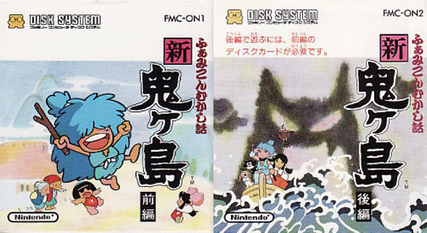
4. Edutainment games: e.g. Mario is Missing. Inspired by reception from parents for games to be more educational.

Also, platforms with edutainment games or games aimed at young audiences (but not necessarily):
One of many examples being the Leapster:

(and for an older demographic more aimed at older children, I'm sure there was one; intending to teach things like nature and history; but which flopped. So to speak, our (newer) generations aren't really the same anymore* - though parents may have bought it to help children at school)
5. An interactive piece of software or creation tool, where the distinction between video game and software is not so clear cut, but there may be video game minigames. Also inspired by reception from parents for games to be more educational. Examples: Mario Paint, Elecroplankton, the Mario Artist games, WarioWare D.I.Y., Game Builder Garage.

6. Simulation games where you overlook or play a detached role in managing something, but rather than (necessarily) to relax; it is generally stimulating. The emphasis on completing these is not as important.
Examples: Doshin the Giant, Sennen Kazoku, The Sims.
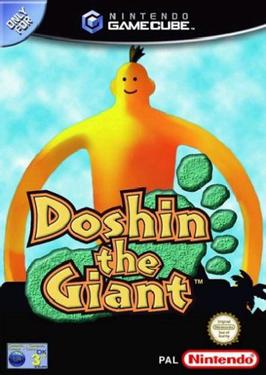
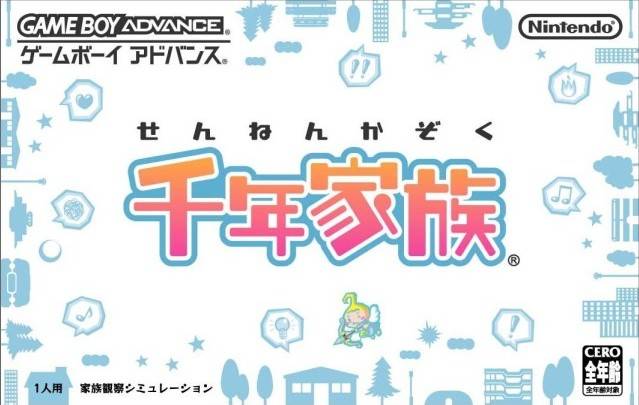
Also the creative elements of games like Minecraft as somewhere in between 5 and 6.
7. Games which are not meant to be fun, but these may still classify as thrill games; or they are an extension of interactive stories. Example: Certain horror games/art games used to illustrate a theme. Also while not necessarily one or the other, games like Undertale may have elements like it; how far can you avoid fighting/are you brave enough to do a pacifist run, when a lot of the other characters are psychologically gaslighting or tempting you to fight?
8. An apparatus of propaganda. This includes the various video games of North Korea, which you can find with some research from what we know (but I don't want to talk about them in case this is lawfully/politically stretching boundaries too far). They may be to praise the leader of the country, and there is also the idea that shooter games in North Korea prepare children for a potential war with the United States.
9. Something I should have added before. Puzzle games like crossword puzzles, Picross, Professor Layton (with Professor Layton specifically encouraging you to be challenged). They're not necessarily going to relax you; some puzzles in Professor Layton might leave you stumped - and they may not have thrilling elements either. Still, they're intellectually stimulating. Professor Layton however has stories and worldbuilding interconnected to the puzzles you solve; they aren't puzzles in isolation.
Addendum note:
*As far as video games are concerned, we might want 'fun' as thrilling/immersive, relaxing/cozy, stimulating; and anything else could come across as an older person's juvenoia (intent on educating us, but such things may not fulfill us), and not understanding that (although some younger people do like these things) it doesn't generally appeal anymore.
So instead of a population interested in things like books, history (except a group of people 'gamers' may not really talk about that do find 'pure education' to be more fulfilling), we want 'entertainment'. That is; as a metaphor 'the lessening of Capricorn' (sometimes also 'the lessening of Cancer') and 'the strengthening of Gemini' (also shadow elements of Pisces).
What I mean by this is - adopting both a practical mindset (concerned with history even if it's boring and to explore the unknown/what we don't see) and holistic mindset (everything and everyone is important as part of the system; not just preference and favouritism) might repel people, or it might be seen as a little 'out there' for saying such things nowadays/people might not think you're honest, or they might think you're too serious, or they might be jealous (but times were a little different then when people were studious without freedom of access, yet there were still such shadow aspects like that). Instead; we project what we want to see for our entertainment on to screens, and caricatures of ourselves, and if something is simply 'not fun' we may avoid it, rather than working to understand what we don't see. Such times became particularly apparent with of course the Internet, improved quality of life (a precursor to that being Thomas Edison, Nicola Tesla etc. who wanted to make things 'better', with Edison being known for the lightbulb, but Edison could also have been seen as a workaholic (99% sweat 1% innovation) and had a possessiveness to his patents as well, and the public image might know him more than Tesla when in fact we use Tesla's alternating current for wireless infrarstructure instead of Edison's direct current often restricted to battery devices etc.)
On the other hand, it's not really anything new and seems to be a pattern that repeats over and over (in fact - the irony of any change is that it's a good thing; to consider the new and let go of rigid ideas of the past, and through transitions of loss/progress, actually brings us back together in the end); in older eras adults complained the same thing about people who were involved with dice/card games, sensuality, alcohol and such. In fact, in this context I don't think it's necessarily surprising at all Nintendo had roots in Hanafuda; and despite their duality of image for both conservity and innovation, they may have been outcast for their time.
Also some people (but not all) don't like simulation games like Doshin the Giant or the Sims, though they have their large audiences, but as for Doshin it's relatively obscure. As for the North Korea example in 7. it's an interesting exception; where the children have the 'yin-drive' of supporting their country so to speak (even though it's polarised as North Korea being greater than the United States).
**And actually, the subject of yin-drive (as support for one's circle outside of themselves within their community) brings me to the dark side of Western and Eastern audiences. Some people from the East may overlook games like Call of Duty (and the cancelled Project HAMMER which apparently caused disputes within Nintendo of America and Japan) as 'lacking in depth', 'too violent', 'mindless' etc. Conversely, some people from the West may overlook certain specific Eastern games; perhaps Tomato Adventure when it was labelled very negatively in an old article by a Westerner about games which deserve being localised (unfortunately I forgot the link), when it received relatively good reception in Japan, or the disharmony between the cute presentation and more mature/disturbing themes (don't judge a book by its cover); yet people from the West also are passionate about MOTHER 3, and Nintendo haven't released it yet. For good conscience though; they may want to tone down on mature themes.
The situation is also interesting where people in Japan might not be keen on Xbox, while people in the West might accept both Xbox and Nintendo, despite Nintendo being a Japanese country. Certain 'gritty' games such as Spaceship Warlock however were released in Japan. For a stereotypical family friendly console for children, the Game Boy Color game DT: Lords of Genomes might be another example.
Additional categories (tend to be disliked in the West for protection reasons and/or ethical concerns):
10. Uranai/占い (divination) video games, such as tarot card reading. However, they may not be condemned if they aren't specific into the occult or use cards etc. e.g. Zoltar the amusement machine fortune telling machine at arcades in the West, while anything that makes reference to something like The Four Pilars of Destiny might not be localised, or have specific details removed in localisation. However, I remember hearing backlash about the occult themed game Cult of the Lamb, which has been released internationally (although a roguelike game which might classify under the 'thrill' category).
11. Eroge games. Games which remain locked to Japan for overly sexually explicit content that satisfy the carnal (like 8. I'm not going to elaborate).
Example video of a game that feels really Western, and with some gritty themes, but was released in Japan anyway:
1. A thrilling (or immersive) game might be something like Super Mario Odyssey, Xevious or Pokémon. For it to fulfill its purpose, it must present a challenge, perhaps also a sense of worldbuilding, its own dynamics of complexity (and engine within its world, whether that's platform physics, a shooter, an RPG etc) and a sense of reward such as clearing a level/finishing the scenario, a highscore etc. Such games are also seen as immersive in their own ways, as players attempt to analyze their world. There is a cognitive response and sense of satisfaction of bringing it to completion. However, the more enjoyable and immersive that game is also comes the risk of addiction (see Skinner Box). What I mean by this analogy is the same reason why Twitter is also addictive; as comments are reinforced by likes (and integrating within the world of your circle). In addition to this, the 'puzzle' to solve might be the roadblock that requires you to think about the solution, or read a strategy game for a game like EarthBound. Thrill games can also feed into a drive for competition and challenge.
In the study of spirituality/religion, it is similar to the Shangri-La pinball machine (the reasons why you can read about in this article). There is a world-building, and a common goal; and more can be inferred through our own head-canons and imaginaions beyond the narrative intended by the developers.


2. Contrary to the idea of a 'thrill' game (which Pong, Super Mario Bros., Pac-Man, countless others have popularised) are relaxing 'cosy' games. For those attached to an outdated idea of video games, this may surprise them; but things like Facebook, mobile phone apps (Farmville etc.), and Satoru Iwata's "Touch! Generations" policies for Nintendo DS (Brain Training) etc were great at introducing older people to video games (also as a stereotype often girls, though I'm a girl and still like thrill games, where outdated conservative ideas will say 'Women are from Venus. Men are from Mars' and are not really interested in thrill and prefer cozy games), and they don't necessarily have to be about thrill. It can also be a means to fantasize having a career such as being a hairdresser, stylist, carer of pets, mother/father/etc or social position like being a villager on a remote island. What I also find interesting, is that apparently Nintendogs for Nintendo DS outperformed Nintendogs + Cats for Nintendo 3DS. Maybe some of these older people felt something like, "is it worth buying the 3DS?"; "I have what I need with the original Nintendogs and Nintendo DS". Of note however is to consider even within 'cozy' games; there may be some element of dopamine reward - as simple as building a pleasing house or a villager complementing you, for instance. Cozy games can also provide an element of escape; the same as thrill games, but for those who prefer cozy games, they might not want something so stimulating as a thrill game.
Also cozy games were on Nintendo's older Game Boy and Game Boy Advance titles platforms too (e.g. third party game Kawaii Usagi); but we gather the Nintendo DS took off probably with its clearer screens and touch controls as a huge factor for older people to accept it. And of course the advertising, and with games like Brain Training, Professor Layton becoming viral. Something being on a handheld device rather than a home console is also relevant (I can't remember specifically, but reception about Nintendo Space World and sentiment about the Nintendo 64DD was that these consoles were too complex/niche, and that people should learn from the Game Boy).

Nintendo actually did plan a Touch Panel adaptor for the Game Boy Color, but it was cancelled (or logically you could say; the Nintendo DS fulfilled that concept).

Many older adults (and girls/women) enjoy cosy games; with lots of people having spent countless hours on Animal Crossing for instance. Of course (despite the demographic patterns), it's also just a stereotype as younger people, boys enjoy these too.
As far as Nintendo is concerned; Animal Crossing as one of the most famous examples. Additionally, it feels like people say the Casio Loopy failed because it aimed for a market that didn't exist and these are not generally 'thrill' games (I don't know if there are any such 'thrill' games for Casio Loopy at all). I disagree with the sentiment that the market wasn't there, and believe that there was such an audience; but it just didn't end up a the top of the bubble of public fame/'relevance'.
The Casio Loopy game I Want a Room in Loopy Town! has been compared to Animal Crossing, 5 years before it came out.
/photo/1


There is both the outdated idea that video games are more like 'thrill' games; as well as the sexism, agism that comes with it (e.g. boys prefer 'thrill' games, older people don't enjoy 'thrill' games etc.)
I remember there is a YouTuber I used to watch (unfortunately I can't remember her channel name) who is an old aged woman. When she inquired about video games, there was (naturally) an assumption that she wanted family friendly games, but really she wanted to play more stereotypical 'hardcore' games with depth like RPGs.
3. A visual novel (it is meant to be read, and sometimes is like a choose your own adventure story). Or a medium for information such as a Satellaview magazine. Examples: Shin Onigashima, PockeCam Magazine, Yuyuki, Time Twist, Metal Slader Glory, Buddy Mission BOND, etc.
4. Edutainment games: e.g. Mario is Missing. Inspired by reception from parents for games to be more educational.

Also, platforms with edutainment games or games aimed at young audiences (but not necessarily):
One of many examples being the Leapster:

(and for an older demographic more aimed at older children, I'm sure there was one; intending to teach things like nature and history; but which flopped. So to speak, our (newer) generations aren't really the same anymore* - though parents may have bought it to help children at school)
5. An interactive piece of software or creation tool, where the distinction between video game and software is not so clear cut, but there may be video game minigames. Also inspired by reception from parents for games to be more educational. Examples: Mario Paint, Elecroplankton, the Mario Artist games, WarioWare D.I.Y., Game Builder Garage.
6. Simulation games where you overlook or play a detached role in managing something, but rather than (necessarily) to relax; it is generally stimulating. The emphasis on completing these is not as important.
Examples: Doshin the Giant, Sennen Kazoku, The Sims.


Also the creative elements of games like Minecraft as somewhere in between 5 and 6.
7. Games which are not meant to be fun, but these may still classify as thrill games; or they are an extension of interactive stories. Example: Certain horror games/art games used to illustrate a theme. Also while not necessarily one or the other, games like Undertale may have elements like it; how far can you avoid fighting/are you brave enough to do a pacifist run, when a lot of the other characters are psychologically gaslighting or tempting you to fight?
8. An apparatus of propaganda. This includes the various video games of North Korea, which you can find with some research from what we know (but I don't want to talk about them in case this is lawfully/politically stretching boundaries too far). They may be to praise the leader of the country, and there is also the idea that shooter games in North Korea prepare children for a potential war with the United States.
9. Something I should have added before. Puzzle games like crossword puzzles, Picross, Professor Layton (with Professor Layton specifically encouraging you to be challenged). They're not necessarily going to relax you; some puzzles in Professor Layton might leave you stumped - and they may not have thrilling elements either. Still, they're intellectually stimulating. Professor Layton however has stories and worldbuilding interconnected to the puzzles you solve; they aren't puzzles in isolation.
Addendum note:
*As far as video games are concerned, we might want 'fun' as thrilling/immersive, relaxing/cozy, stimulating; and anything else could come across as an older person's juvenoia (intent on educating us, but such things may not fulfill us), and not understanding that (although some younger people do like these things) it doesn't generally appeal anymore.
So instead of a population interested in things like books, history (except a group of people 'gamers' may not really talk about that do find 'pure education' to be more fulfilling), we want 'entertainment'. That is; as a metaphor 'the lessening of Capricorn' (sometimes also 'the lessening of Cancer') and 'the strengthening of Gemini' (also shadow elements of Pisces).
What I mean by this is - adopting both a practical mindset (concerned with history even if it's boring and to explore the unknown/what we don't see) and holistic mindset (everything and everyone is important as part of the system; not just preference and favouritism) might repel people, or it might be seen as a little 'out there' for saying such things nowadays/people might not think you're honest, or they might think you're too serious, or they might be jealous (but times were a little different then when people were studious without freedom of access, yet there were still such shadow aspects like that). Instead; we project what we want to see for our entertainment on to screens, and caricatures of ourselves, and if something is simply 'not fun' we may avoid it, rather than working to understand what we don't see. Such times became particularly apparent with of course the Internet, improved quality of life (a precursor to that being Thomas Edison, Nicola Tesla etc. who wanted to make things 'better', with Edison being known for the lightbulb, but Edison could also have been seen as a workaholic (99% sweat 1% innovation) and had a possessiveness to his patents as well, and the public image might know him more than Tesla when in fact we use Tesla's alternating current for wireless infrarstructure instead of Edison's direct current often restricted to battery devices etc.)
On the other hand, it's not really anything new and seems to be a pattern that repeats over and over (in fact - the irony of any change is that it's a good thing; to consider the new and let go of rigid ideas of the past, and through transitions of loss/progress, actually brings us back together in the end); in older eras adults complained the same thing about people who were involved with dice/card games, sensuality, alcohol and such. In fact, in this context I don't think it's necessarily surprising at all Nintendo had roots in Hanafuda; and despite their duality of image for both conservity and innovation, they may have been outcast for their time.
Also some people (but not all) don't like simulation games like Doshin the Giant or the Sims, though they have their large audiences, but as for Doshin it's relatively obscure. As for the North Korea example in 7. it's an interesting exception; where the children have the 'yin-drive' of supporting their country so to speak (even though it's polarised as North Korea being greater than the United States).
**And actually, the subject of yin-drive (as support for one's circle outside of themselves within their community) brings me to the dark side of Western and Eastern audiences. Some people from the East may overlook games like Call of Duty (and the cancelled Project HAMMER which apparently caused disputes within Nintendo of America and Japan) as 'lacking in depth', 'too violent', 'mindless' etc. Conversely, some people from the West may overlook certain specific Eastern games; perhaps Tomato Adventure when it was labelled very negatively in an old article by a Westerner about games which deserve being localised (unfortunately I forgot the link), when it received relatively good reception in Japan, or the disharmony between the cute presentation and more mature/disturbing themes (don't judge a book by its cover); yet people from the West also are passionate about MOTHER 3, and Nintendo haven't released it yet. For good conscience though; they may want to tone down on mature themes.
The situation is also interesting where people in Japan might not be keen on Xbox, while people in the West might accept both Xbox and Nintendo, despite Nintendo being a Japanese country. Certain 'gritty' games such as Spaceship Warlock however were released in Japan. For a stereotypical family friendly console for children, the Game Boy Color game DT: Lords of Genomes might be another example.
Additional categories (tend to be disliked in the West for protection reasons and/or ethical concerns):
10. Uranai/占い (divination) video games, such as tarot card reading. However, they may not be condemned if they aren't specific into the occult or use cards etc. e.g. Zoltar the amusement machine fortune telling machine at arcades in the West, while anything that makes reference to something like The Four Pilars of Destiny might not be localised, or have specific details removed in localisation. However, I remember hearing backlash about the occult themed game Cult of the Lamb, which has been released internationally (although a roguelike game which might classify under the 'thrill' category).
11. Eroge games. Games which remain locked to Japan for overly sexually explicit content that satisfy the carnal (like 8. I'm not going to elaborate).
Example video of a game that feels really Western, and with some gritty themes, but was released in Japan anyway:

